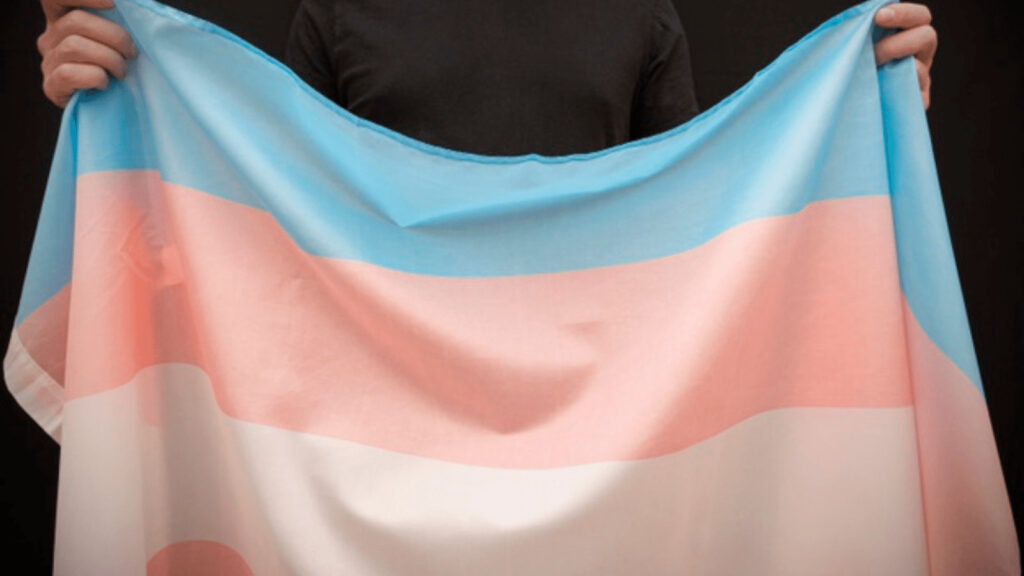We celebrate the lesbian, bisexual, queer, trans, and intersex women and gender nonconforming people who challenging oppression in all its forms and creating a future that is self-determined, sex-positive, safe, welcoming, and inclusive !
Every year on the 8th of March, countries all over the world and its people celebrate what is known as International Women’s day. As human civilization grows into a more inclusive and accepting kind, the question remains for our friends of the LGBTQ+ community. Has the celebration for women worldwide include trans and queer women? Ian Hugen and Tamara Pertamina share their stories as trans individuals of seemingly contrasting backgrounds.
Ian Hugen, Content Creator And Trans-Rep
On February 24th, 2021, an interview was conducted with Ian Hugen, an Indonesian trans model, content creator and self-proclaimed trans representative. Though it is admirable to become a trans representative, even being an ally to the queer community can be difficult and often dangerous, even more so for those of the LGBTQ+ community itself. Being a member of the community and being vocal of your advocacy for it is no doubt a commendable act that may take a toll on a person. “I realized that I’m very lucky, unlike most trans individuals out there. For example—especially—when it comes to jobs; I have a secure job and I have an audience, I have the platform to speak up, which our trans friends out there might not have,” Ian stated on the reason why she chose to be vocal about trans representation. “[We] have aspirations but no one to listen, meanwhile in my case, I have always had people who listens to me that’s why, because I have all that; because I have the privilege to. And that is why for as long as I can, I want to deliver aspirations that we as a community have.”
We quickly landed on the discussion of societal standards and gender dysphoria. Simply put, gender identity is described as a person’s inner sense of masculine or feminine, whereas gender role is the person’s public expression of what being a male, female or mix aka androgynous according to Black’s Medical History by Harvey Marcovitch. For Ian, she thankfully never had to change the way she presents herself or was forced into being. “I haven’t taken any hormone injections or the likes so the hairs growing on my body is still the same as it always has been and so I have a very hairy body.” She gestured to her arms and hands, explaining that she has always been quite self-conscious about it. “People would say stuff like, ‘eww you have hairy arms’ or ‘eww you have manly hands’ and tell me to shave.” Something that have hurt her feelings in the past but have since grown past and learned to accept as a part of her.
Self-love is part of life's process and there will always be challenges with one of which being these standards
Ian Hugen Tweet
“I’ve been doing this for four years now—I have always promoted self-love and self-acceptance so like, “am I really promoting these things when I myself am struggling with it?” It made me reflect a lot and I’ve always said that self-love is part of life’s process and there will always be challenges with one of which being these standards.” Ian expressed.
Tamara Pertamina, Artist In The Street of Jogja
A couple of days after the interview with Ian, I interviewed a non-binary creator by the name of Tamara Pertamina (26/2). Different from Ian, Tamara initially identified as a masculine-presenting trans-woman before later on finding comfort in the term non-binary. “There was a lot of denial from the trans community, which although didn’t offend me, made me think [about my gender identity].” Tamara later noted the experiences of being told that people have to present themselves in specific ways and to fit in specific boxes, an abstract standard that even some of the LGBTQ+ community here would uphold; a notion that the interviewee highly disregarded.
Gender itself is very fluid, so why must we put them in boxes ?
Tamara Pertamina Tweet
The rejecting of this is also echoed later on in how Tamara dresses and deals with gender dysphoria. Rather similar to Ian, Tamara states that it is important to have self-acceptance, especially if changing the physical body is out of reach. However, Tamara further explained that by changing one’s body to fit what is socially acceptable as feminine or masculine, it is conforming to the boxes that Tamara heavily disregards and seeks gender presentation to be something that should be up to your own standards instead of the societal norm. “Gender itself is very fluid, so why must we put them in boxes?”
Numerous studies have shown that homelessness affects the transgender population greatly as a result of many of them being kicked out of their own homes. Many LGBTQ+ youth continue to live in fear for their safety in Indonesia as authoritative figures continue to discriminate against them. According to Human Rights Watch in 2017, police forces in Indonesia have raided numerous bars, clubs, saunas, hotel rooms and even private homes in search for what they presume to be queer individuals, apprehending at least 300 people in the process. Tamara personally shared the struggles that one had—and still has—to go through stating that since many trans youth has to grow up in the streets without proper education, it can be very difficult for them to find jobs, making it difficult to make a liveable wage. The full interview was held live on Instagram and its full version can be found in Tamara’s profile below :
Journey To Equality For TransWomen : We Exist
As the interview focuses mostly on the basis of women, I inquired what sexism is like for them as many cis-women out there are expected to cook, clean, be a mother, etc. Statistically speaking, there are 3.82 billion women out there according to the UN in 2019 and each of them are unique. But society has a standard and often arbitrary requirements as to what it means to be a woman and what feminine things are. For Tamara, it is mostly the standards that even the queer community has upheld, making Tamara too masculine or too feminine. In our conversation, Tamara noted that people always say that Tamara is ‘too x’ or ‘very y’ and not simply ‘y’ as if there is an invisible range to follow.
As International Women’s day approaches, we discussed a bit about their feelings towards the day. “I’m not someone who celebrates anything all that much, I feel that [the struggle] is something we have to fight every day.” Regarding IWD, pride month and Trans-visibility day, Tamara sees it as something that although nice, isn’t a time to stop fighting and relax. But also added that if groups or other external parties were to invite Tamara to be involved with it, Tamara would gladly accept.
Ian, on the other hand, sees International Women’s day as something that not only has a place for people like her, but also gave companies an opportunity to include her and her community. “I feel quite included especially since there are brands that would request a collab (read : collaborative) [with me] for their international women’s day campaign. So yeah, I feel like I get a lot of acknowledgement from other people that made me feel like, ‘oh I’m quite included in international women’s day.’”
Rainbow After A Storm
At the beginning of each interviews, I asked them both what being a trans individual is, be it a trans-woman or non-binary. Ian responded that by definition, transgender is simply someone who transitioned from an assigned gender at birth, to one they are more comfortable with. “But if you ask me, what does it mean to be a transwoman according to Ian? This is one of my biggest dreams, that I’m finally living in,” she said and added “I’m always thankful for the title; now I’m a woman.” A message that somehow echoed to my interview with Tamara as well who expressed joy and excitement after having changed the names on the birth certificate and national ID.
Where Tamara finds the standards to be very abstract and arbitrary, Ian finds them quite comforting for her as her previously deemed ‘flawed characteristics’ are now embraced and highly encouraged. As a matter of fact, an LGBTQ+ rights group in Indonesia by the name of GAYa Nusantara has been getting more attention lately since its first created in the 1980s despite the growing numbers in anti-LGBT rhetoric in 2016.
“Bhineka tunggal ika,” Tamara said, “different but united.” In regards to accepting and tolerating others. Both Tamara and Ian as well as many transwomen in Indonesia sees that at the very least, we are to tolerate and respect, even if you still somehow dislike or ‘disagree with their lifestyle’. Though many LGBTQ+ individuals out there may feel that this isn’t enough, the two seem to acknowledge it as a first step to a more accepting and loving society; a glimmer of hope for the future of our queer friends.



